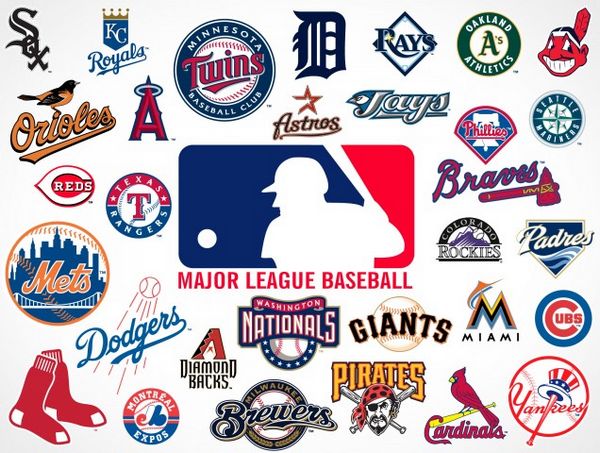As they say, "it happens every Spring". The birds fly north, the beautiful leaves form and the start of another brand new Major League Baseball season. Sadly, another time-honored tradition seems to appear. Seasoned bettors seemed to cling to their one and only favorite offshore sportsbook for months throughout the MLB season. And if any sport demands a smart gambler to be fickle, it's the old ball game.
Here's why:
Football and basketball traditionally depend on the point spread for a huge majority of their action. Whether it be the usual daily line, teaser or reverse teaser, a scoring play in the game decides the outcome and whether you might sleep that night. Even beyond that, the probability theories that many handicappers throw around (including myself) are dependent on historical information on how those teams performed within "the number". Often, there isn't even a remote case made on whether a team has a chance to win the game. Simply a great opportunity to "cover the spread" or take advantage of an extra point or two.
 In Baseball, Winning the Game is Everything
In Baseball, Winning the Game is Everything
Tossing aside the runs line with the usual -1.5 spread, 90% or more of all action in Nevada and at all top online sportsbooks is devoted to the pitcher's line and the money line posted to WIN for a selected team. And for good reason.
Last season for example the St. Louis Cardinals won the most games at 100 or a .617 winning percentage. The Philadelphia Phillies won the least at 63 or .389. If you factored that in comparison to the other three popular U.S. betting sports (NFL, NBA, NHL) you wouldn't find near a similar Win-Loss ratio between the best to worst. In fact, most MLB teams reside in the middle winning percentage between .480 to .560.
Perhaps it's the mind-boggling 162 game schedule or the 5-man pitching rotation plus 15 other factors but baseball win/loss numbers over dozens of seasons have been consistent. Anybody can beat anybody anywhere on any day during the regular season. For the most part, when you're down six runs in the 7th inning to any team, you're not looking or even praying for any "back-door cover". You might as well turn on the news and just check back in 20 minutes to sooth your pain.
Buy the Best Lines
So what does that mean to the bettor and how should they be prepared?
We all sneak a peek at those gas prices as we cruise past the stations. Why pay 5 cents more per gallon for the same product? We clip coupons and love a sale price on everything from a shirt to a mattress. Shouldn't you buy the San Francisco Giants at -140 instead of -160? Wouldn't you feel smart cashing in on the Angels at +135 instead of +115? Hell yeah.
The list of the most reliable and preferred offshore sportsbooks provides a reminder opportunity to get into a good habit for baseball season. Especially if you're making it a practice to wager one to two games per day over a long six months. Without going into deep statistics, over hundreds of games the opportunity to cash on opportunities of greater value are very important. Maybe more crucial are the unnecessary risks you take losing on favorites, especially the high-price favorites.
Dime Lines, 20 Cent Lines and Fat Spreads
Over the course of the MLB season, most offshore sportsbooks daily list what is referred to as the traditional "dime line". It is there that I would recommend placing most of my attention toward the fairest value and evaluation of the game overall, whether you're playing the favorite or underdog.
Monitoring the first few days of the baseball season reflected popular sportsbook BetOnline posting most of all their games on the Dime Line and a few games even narrower within. That's a good value for the player and good sign of overall goodwill as an omen for the season. To be fair, the more a baseball team is favored and usually with a very strong starting pitcher, the more likely you're going to see at least a "20 cent line" or spread between the favorite and underdog. For example, at preferred sportsbook Bovada, many of their players are prone to bet favorites, making it difficult to balance action. It is not unusual to see a top Cy Young pitcher like a Justin Verlander of the Tigers or a Clayton Kershaw of the Dodgers posted at -240 or more at home. The underdog teams are usually listed at a +180 or +190 price, reflecting this "fat spread".
These are certainly the type of games that truly demand the need to belong to two or more sportsbooks to get the best value possible and best price you possibly could achieve. Hence, if you're going to take a high risk, try to minimize it. And if you're shooting for the moon with a longshot, might as well get the best return possible.
Several high-profile sportsbooks are available in a defined list of the most preferred sportsbooks to wager for baseball season. Like spreading your money into two or more banks or investing in different stocks, it's a good habit to diversify and comparison shop. Not that it's a bad habit for football or basketball either, but baseball with its customary money line and narrow margin for error is really a priority rule.
It might not be like losing a football game by a half point to the spread but it's an empty feeling knowing you should have more money in your account for the same satisfying win, right.
Glenn Greene covers the games from a betting angle every week exclusively at OSGA.com. For weekly betting insights, inlcuding previews and picks from Glenn, click here.







































